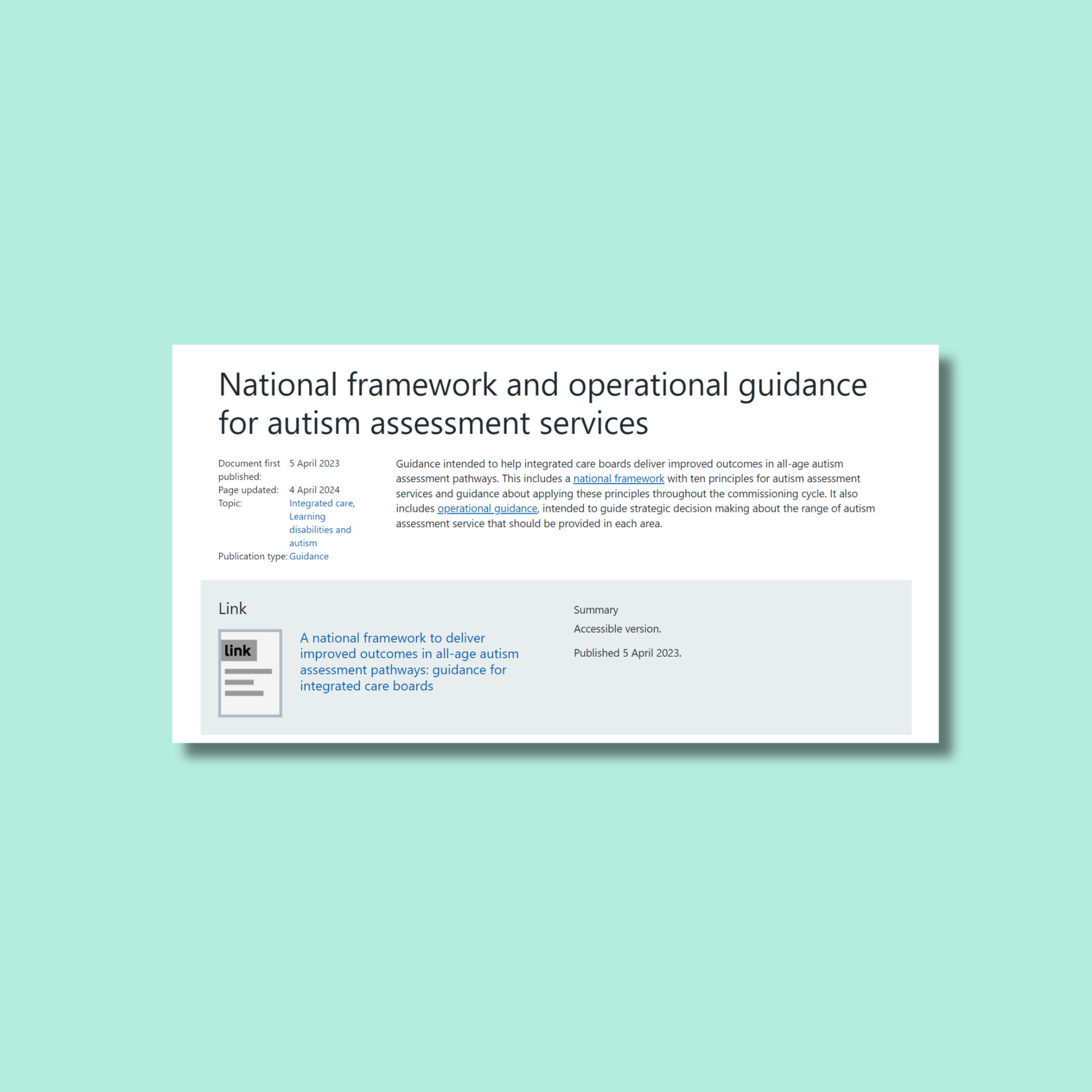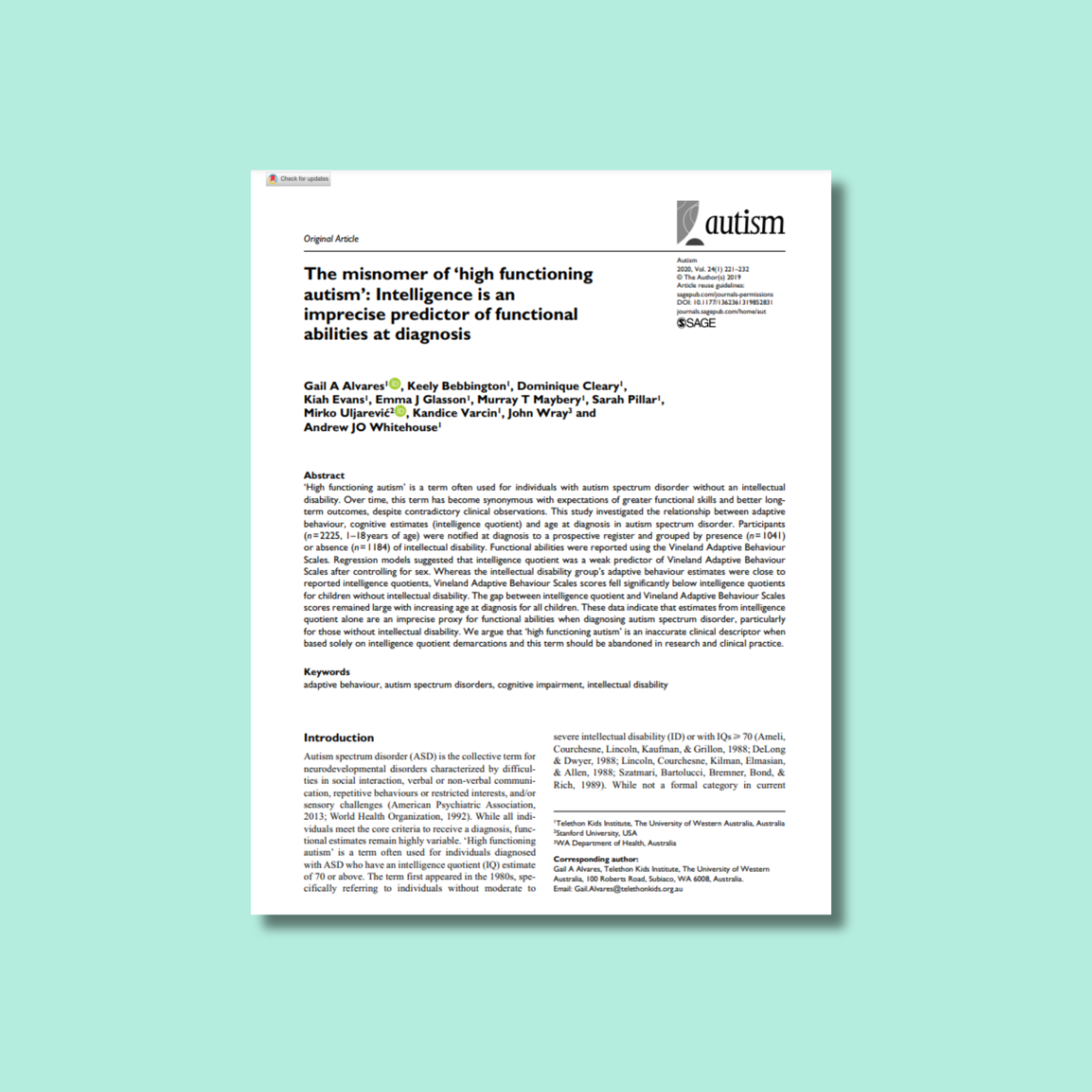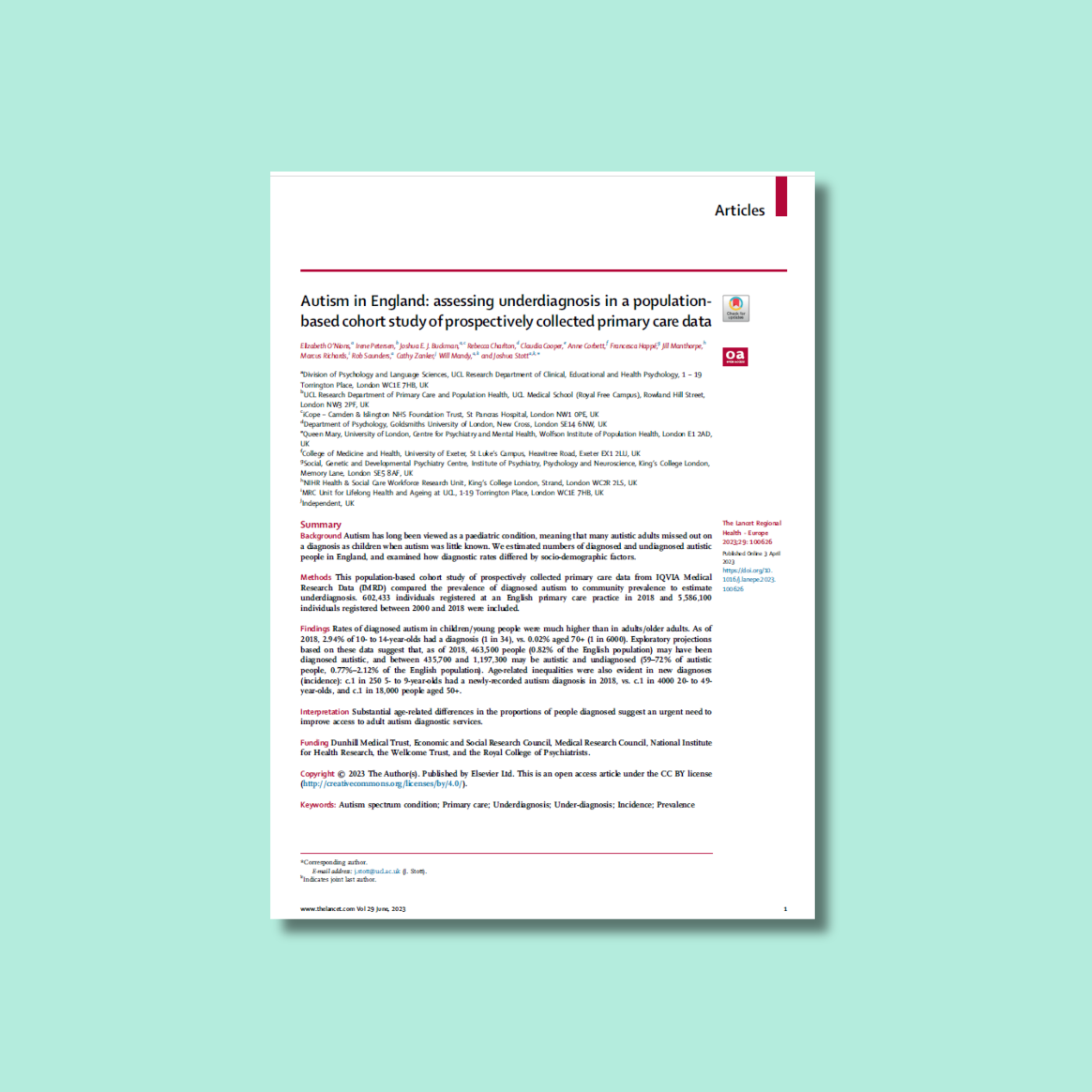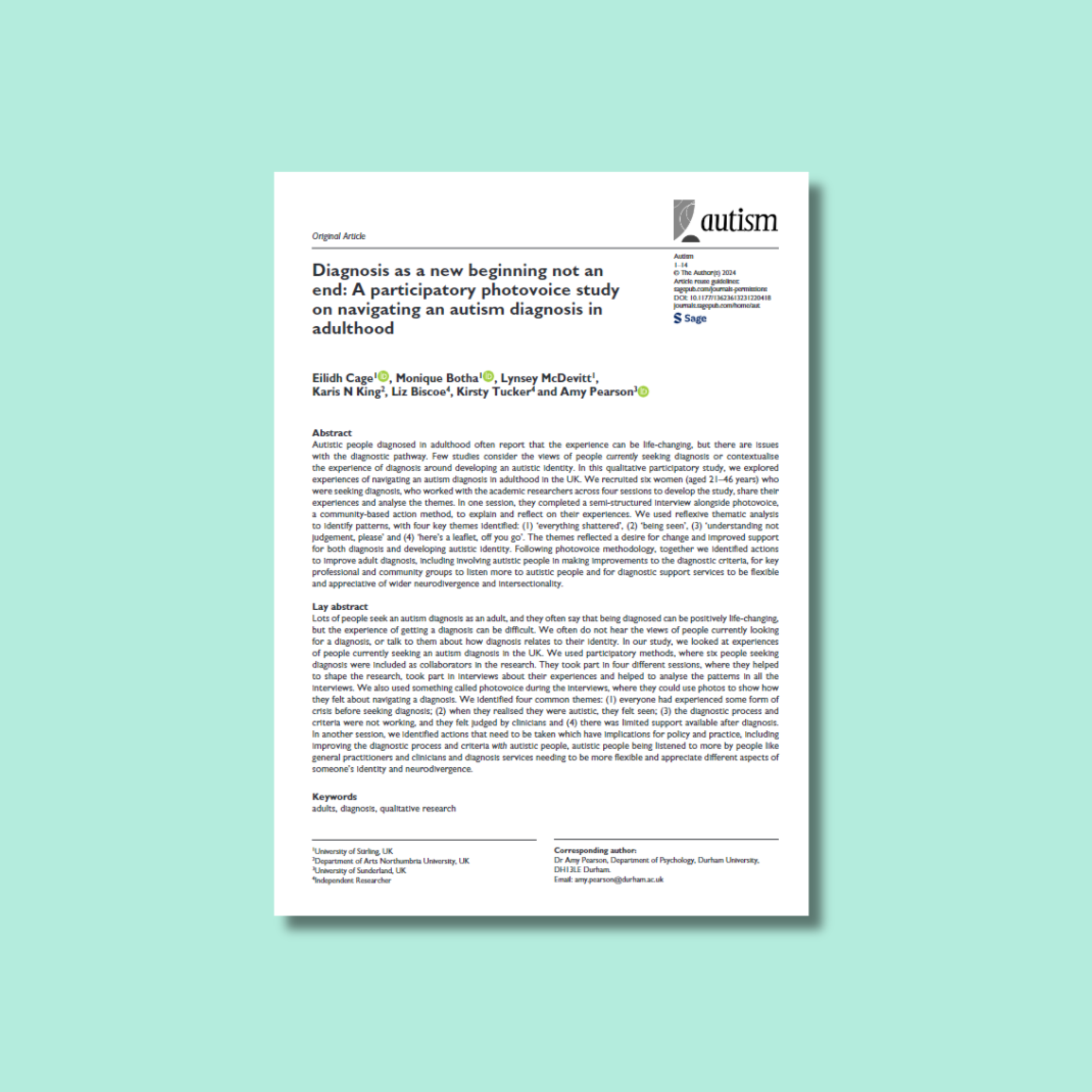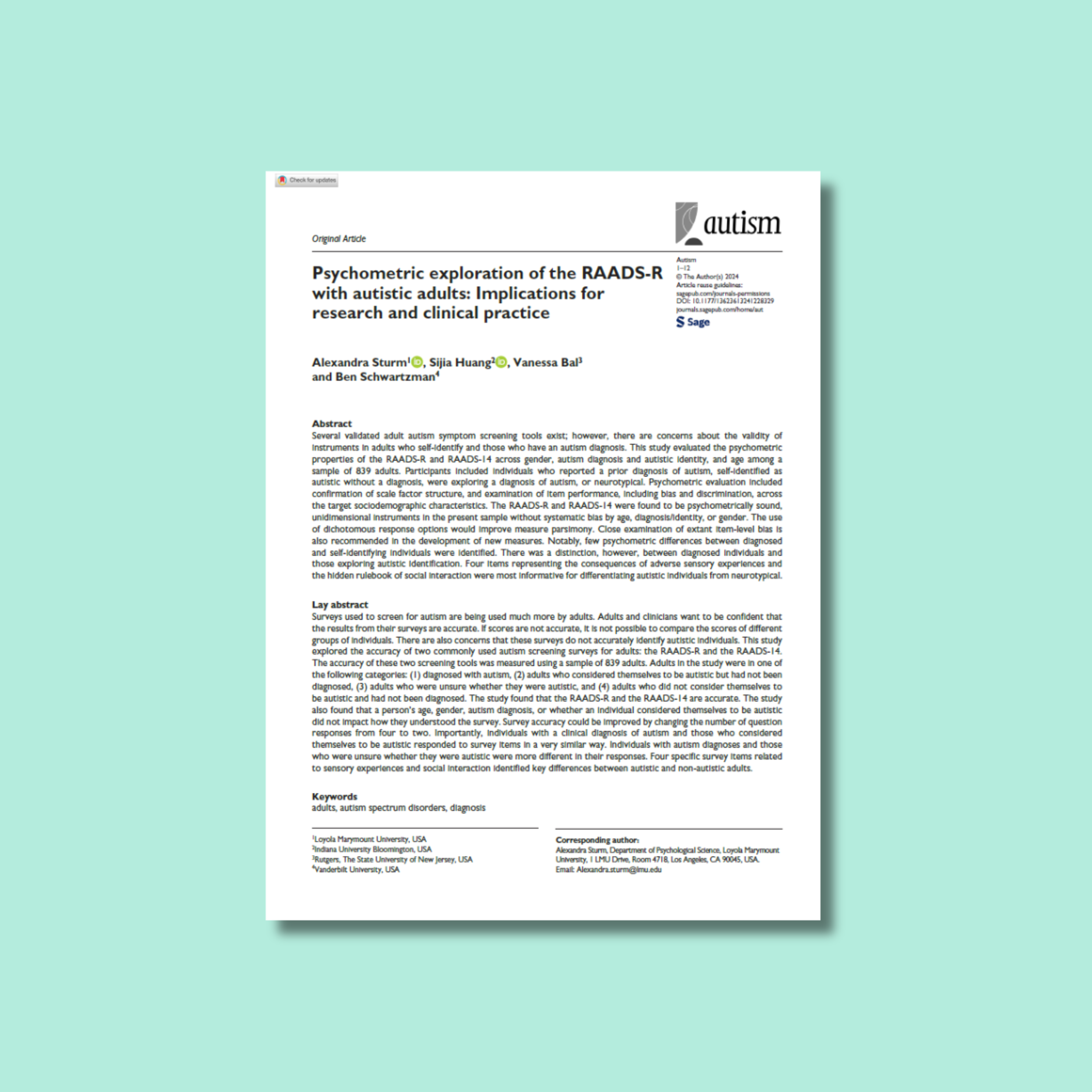 Image 1 of 1
Image 1 of 1


Psychometric Exploration of the RAADS-R with Autistic Adults: Implications for Research and Clinical Practice
Sturm, Huang, Bal and Schwartzman (2024)
More adults are using surveys to screen for autism, and it’s important these surveys give accurate results. This study tested two common autism screening tools, RAADS-R and RAADS-14, with adults who were diagnosed, self-identified, unsure, or non-autistic, and found both tools to be accurate. It also showed that age, gender, or diagnosis didn’t affect how people understood the surveys, and that people with a diagnosis and those who thought they were autistic answered very similarly.
Sturm, Huang, Bal and Schwartzman (2024)
More adults are using surveys to screen for autism, and it’s important these surveys give accurate results. This study tested two common autism screening tools, RAADS-R and RAADS-14, with adults who were diagnosed, self-identified, unsure, or non-autistic, and found both tools to be accurate. It also showed that age, gender, or diagnosis didn’t affect how people understood the surveys, and that people with a diagnosis and those who thought they were autistic answered very similarly.


